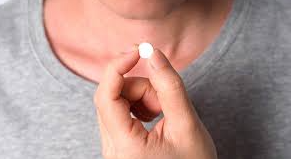
A growing number of single women in the UK are choosing fertility treatments, finding empowerment in creating families on their own terms, despite lingering societal stigma.
In recent years, a growing number of single women in the UK have been opting for fertility treatments, such as in vitro fertilisation (IVF) and donor insemination (DI), to become mothers without a partner. This shift in reproductive choices reflects changing societal attitudes, as more women see solo parenthood as a viable and empowering option. While challenges remain, the number of single women seeking fertility treatments has skyrocketed, tripling over the past decade.
Amy, 45, is one of these women. She decided to pursue IVF during the Covid-19 pandemic, realising that her chances of meeting a partner were dwindling. “I’d been thinking about it for a while, and with Covid, I realised I might never meet someone,” she says. “I didn’t want to be the woman who says, ‘We’ve had one date, let’s have a baby.’”
Her decision paid off. Amy’s first embryo transfer was a success, and today, she is the proud mother of a three-year-old. Reflecting on her experience, she feels that going through IVF without a partner was easier than she had imagined. “I think it was actually a bit simpler. I didn’t have to worry about someone else’s emotions or take my frustrations out on them. It was just me, taking care of myself,” she explains.
Amy also found a sense of liberation in her decision. “When people ask, ‘Did he leave you?’ or ‘Did you leave him?’ I feel empowered to say, ‘No, I did it on my own,'” she says. Despite initially worrying about the absence of a father figure in her daughter’s life, Amy now believes that not rushing into a relationship simply to provide a father has been the right choice for her family.
The number of women like Amy is growing. According to the Human Fertilisation and Embryology Authority, the number of single women undergoing fertility treatment has more than tripled in the last decade, from 1,400 in 2012 to 4,800 in 2022. This increase is part of a wider trend, with more women—especially those in same-sex relationships—using assisted reproduction to start families.
For Emma Brockes, a Guardian columnist based in New York, being gay made her decision to pursue IVF as a single woman more straightforward. At the time, she was in a “tenuous relationship” with her partner, who agreed that they shouldn’t have children together. Today, Brockes is the mother of nine-year-old twins and is “thrilled” that more women are choosing fertility treatments.
“I’m really glad it’s becoming more common,” she says. “The biggest barrier is the shame around it. Women often feel it’s second-best, but I think not doing something for that reason is almost always the wrong choice. If you want children, you should go for it.”
Brockes also notes that being a lesbian made the process feel more natural. “As a lesbian, we always need help to have children, so it never felt unnatural,” she explains. “However, going through it alone isn’t for everyone. For me, it was important to do it on my own, though I had plenty of support from friends who would have come to appointments with me if I’d asked.”
Jennifer, 45, is still contemplating her own path to motherhood. Having moved countries and put her career first, she finds dating in her mid-40s almost impossible. “I’ve left it a bit late,” she admits. “And after having breast cancer, I’ve been focusing more on what I really want.”
Jennifer is considering IVF, but she knows it comes with financial and emotional challenges. “I need to be able to afford not just the treatment but also raising a child on my own,” she says. “I’m grateful for the advances that make it possible for women to have children on their own, but I wouldn’t call it empowering. I’d much prefer to do this with the love of my life.”
For Helen, a 40-year-old civil servant in Scotland, the choice to pursue IVF as a single woman has been a difficult and painful one. After surviving domestic abuse, she made the decision to try to have a second child on her own. Unfortunately, after a year of treatments, she has been unable to afford further rounds of IVF, and the emotional strain of going through the process alone has taken its toll.
“I wish I’d understood earlier that my reproductive choices would have been better if I’d frozen my eggs,” she reflects. “More women should be aware that just because you can have IVF on your own, it doesn’t guarantee success.”
Helen’s experience underscores the emotional and financial challenges of fertility treatment, particularly for women who choose to go through the process alone. While many women find empowerment in the ability to have children on their own terms, the journey is not without its difficulties.
Despite these challenges, the rise in solo motherhood shows a significant shift in societal expectations. With more women choosing IVF and donor insemination to start families, the notion that parenthood requires a partner is being slowly dismantled. The increasing acceptance of single women becoming mothers by choice marks a new era in reproductive rights and family dynamics.










